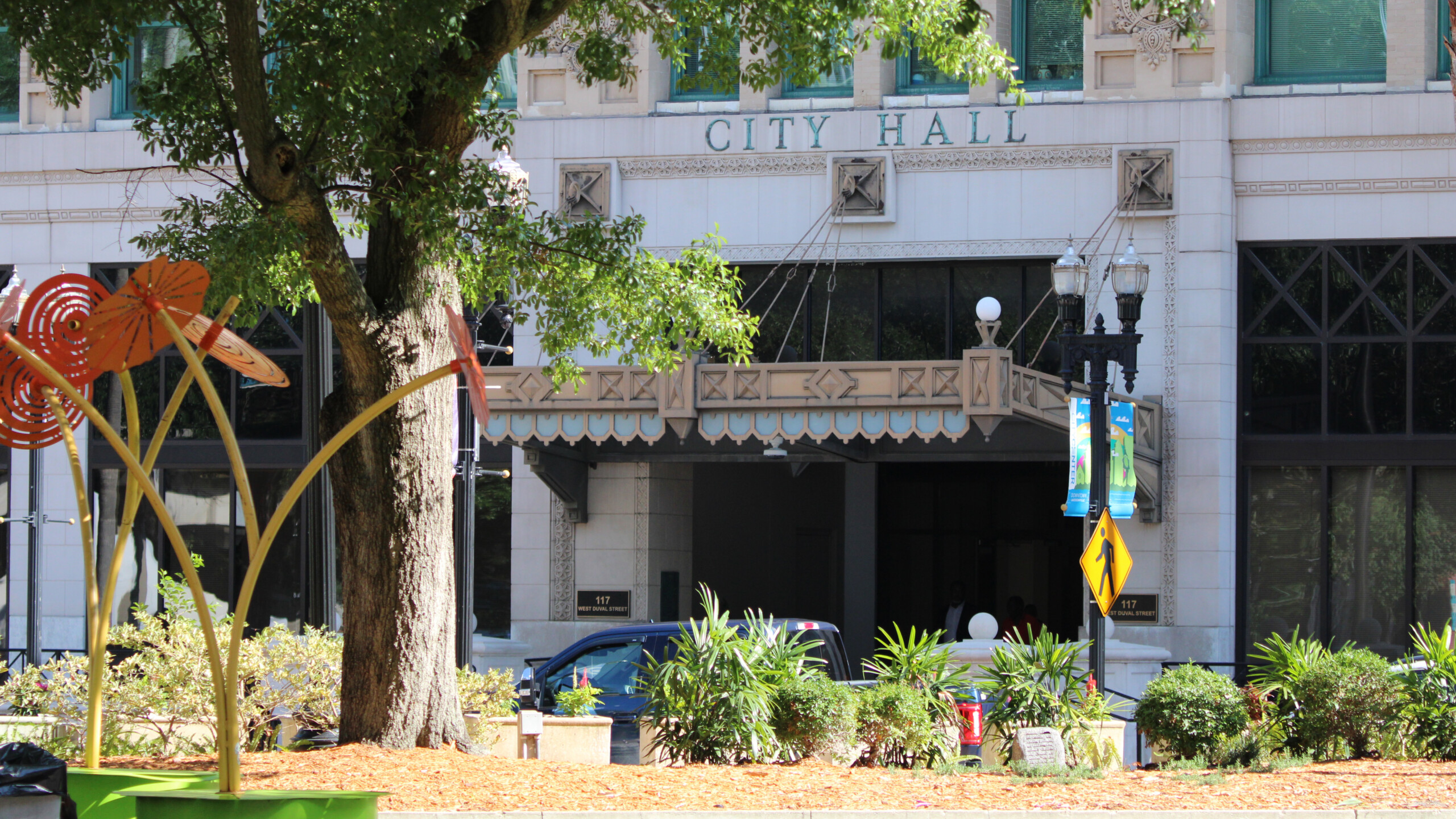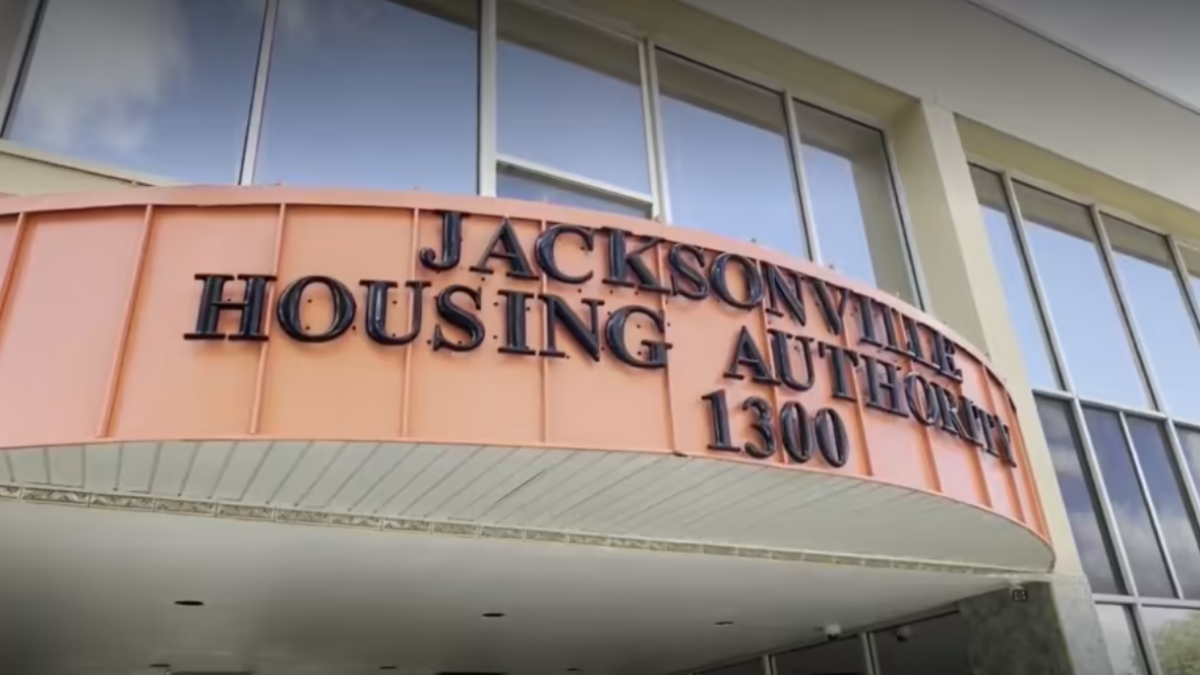City Council members spent much of Thursday morning proposing to shave $10 million from Mayor Donna Deegan’s proposed $1.92 billion budget during the first of several Finance Committee meetings on the topic.
Finance committee members who voted for the cuts say the city should not be dipping into reserve funds to pay for several proposals, including an affordable housing program that advocates say brings a private-funding match of $30 million.
Outside the council chambers at the same time, Deegan held a press conference to defend the use of reserves and said she hopes the majority of City Council “thinks better of this.”
Deegan said every year, money flows in and out of the reserve fund.
“We usually end up with 20 or 30 million additional dollars by the end of the year that we can put back in reserves or we can use for other things,” she said. “It just makes good fiscal sense. You don’t give back (millions of dollars) that you have allocated for a problem that is No. 1 in your city and just toss it to the wind.”
City Council members, faced with an auditor’s report that shows the potential for deficits over the next four fiscal years — starting with a projected $78 million deficit in 2025-26 — have stated intentions to cut $47 million in reserves spending. Reserves are typically funds set aside for necessary unbudgeted spending.
In an emailed statement, the mayor’s office said that emergency reserves are for emergencies only and are not being touched with the proposed budget. Operating reserves are where $47 million in reserves spending is coming from and are what have been tapped in 9 of the last 10 budgets, part of a normal process, the office states.
City Council member Rory Diamond, who represents the Beaches, initiated several of the cuts, which come on the heels of his announcement earlier this week that he aims to introduce legislation that could limit the mayor’s spending ability, restrict future spending and prohibit spending on city diversity, equity and inclusion initiatives.
On Thursday he proposed a slew of cuts, including to the Self Help venture fund, which aims to increase affordable housing and workforce housing in Jacksonville.
According to Community Foundation of Northeast Florida, the city’s $10 million would leverage $30 million in investment from private and philanthropic partners, like the Community Foundation, and create a $40 million fund that is expected to yield $120 million in new affordable rental housing.
Diamond said he didn’t feel the program was “fleshed out.”
“The point that I would make to the public is that this doesn’t prevent the administration from coming up with future legislation — once it’s more fleshed out — in my opinion,” Diamond said.
The Deegan administration finds the suggestion that the program was not “fleshed out” preposterous.
“We completely reject the notion that the housing fund isn’t ‘fleshed out,'” said city spokesman Phil Perry in an email. “Five years of planning have gone into the housing fund in Jacksonville. Most of the council has had meetings about it, and it’s a recommendation of the Special Committee on Affordable Housing and Homelessness. And this model has been successfully deployed by Self Help in three North Carolina cities.”
Regardless, most of Diamond’s colleagues on the dais agreed to “put things below the line,” meaning that final budget recommendations will be reviewed at a wrap-up of the meetings.
That included Finance Chair Ron Salem.
“I am of the belief that we can use some operational reserves, and I’d like to be fairly consistent with past years,” Salem told his colleagues. “We may need to shift some one-time expenses into that to be consistent with those operational reserves. I’d rather do that at the end of the process.”
Not everyone agreed, however.
Council member Ju’Coby Pittman, who represents District 10, which covers parts of Northwest Jacksonville, said the program allows the city to develop diverse affordable housing that is desperately needed.
“We know that there is a deficit in housing and so I’m not comfortable in making any decision off the cuff without giving the organizations a chance to discuss it,” Pittman said.
Others on the council disagree with the proposed cuts wholesale. At-large Councilman Matt Carlucci, who is not on the Finance Committee, feels strongly that Deegan’s budget is well thought out and should be passed as-is this September.
“Cutting this $10,000,000 from the budget like the City Council Finance Committee did just this morning is akin to swimming halfway across the St. Johns River only to turn around and swim back, like we always seem to do,” Carlucci said in an email. “We must be bold in this budget process and ensure these funds are allocated effectively to make a real impact.”
Deegan said the effort to slice out the affordable housing money is “extremely short sighted” and just to “show that they can cut.”
“At the end of the day, we’ll do everything we can to get it back,” Deegan said.
There are six more finance meetings to go before a full council vote.
The budget discussion continues Friday morning at 9 a.m. Council members who heard from multiple departments Thursday on budget requests are expected to hear from 12 more city departments, beginning with the mayor’s office.
Reporter Steven Ponson contributed to this story.
The story was updated Aug. 9, 2024, to correct details about the affordable housing program. The Community Foundation of Northeast Florida says the city’s $10 million expenditure would leverage $30 million in private investment — not $20 million.

Casmira Harrison is a Jacksonville Today reporter focusing on local government in Duval County.






